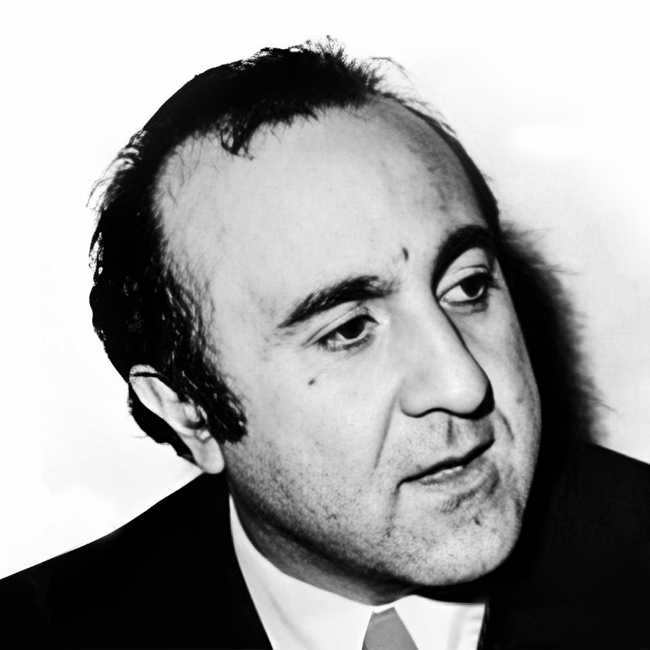

Farīdūn Rahnamā (May 23, 1930–August 8, 1975) was a film director, producer, and poet. In the 1950s, he studied cinema in Paris, and upon his return, he taught cinema in Iran. In his brief life, Rahnema accomplished a great deal, making three films, composing six poetry collections, and writing numerous articles on cinema and literature. He strongly supported modern and avant-garde movements in literature, cinema, and theater, and had an impact on introducing contemporary poetry to Iran.
Rahnema is well known for making the short documentary Takht-e Jamshid (Persepolis, 1960). He also made two feature films: Sīyāvash dar Takht-i Jamshīd (Siavash in Persepolis, 1965) and Pisar-i Īrān az mādarash bi ittilā’ ast (Iran’s Son is Unaware of His Mother, 1976). Following the founding of the National Television of Iran in 1967, he also produced an array of experimental, fact-based, and historical documentaries about Iran, such as Jām-i Hasanlū (Hassanlou Chalice, 1964).
He was instrumental in founding the Free Cinema (Sīnamā-yi Āzād) movement in 1969. Some critics may have found his films lacking in technical finesse, while his distinct style and departure from conventional cinematic forms have received recognition.


